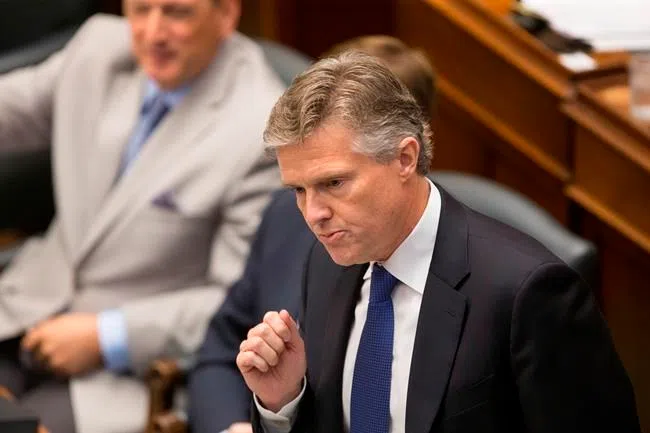
Ontario launching constitutional challenge of federal carbon tax plan
TORONTO — Ontario is launching a legal battle against the federal government over its carbon tax plan, a costly move critics say has little chance of succeeding.
Environment Minister Rod Phillips and Attorney General Caroline Mulroney made the announcement Thursday, saying they received a clear mandate during the spring election to fight the federal tax for provinces that don’t have their own carbon pricing system.
Mulroney would not say whether she thought the province could win but denied the legal challenge was simply a gesture meant to appease Progressive Conservative supporters.
“It’s not symbolic for the people of Ontario who want us to do everything that we can to stop the federal Liberals from imposing this tax on them … it’s what we were elected to do,” she said.
